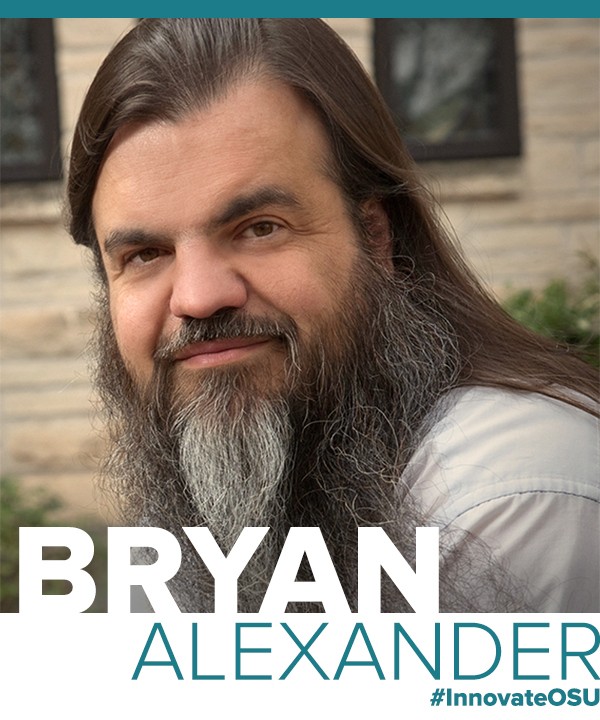Keynote Q&A with Bryan Alexander

How many times in your life have you been asked, “What do you see for yourself in the future?”
For some, that question creates a sense of panic. But for Innovate keynote speaker Bryan Alexander, that question drives his professional life.
Bryan is a futurist, researcher, writer, speaker, consultant and teacher. His areas of expertise include (but are not limited to) digital storytelling, mobile devices, gaming, pedagogy, scholarly communication, forecasting, and how that all influences the future of academia.
Learn more about Bryan through his Q&A below. His presentations at this year’s conference will lead our technology thread, discussing how technological advancements will alter or enhance the teaching and learning experience.
You’re described as a futurist. From an outsider looking in, how do you explain that concept?
A futurist is someone who helps others think more effectively about the future. We help people better understand the seeds of the future in the present, envision multiple possible futures, and prepare to respond strategically.
It seems like education is at a pivotal point, transitioning from the “traditional” to the “new and next.” Do you see that, and how can educators navigate through this new norm?
Yes. One way of looking at our time is as a transition phase from where it was in the 1990s (pre-mobile devices, the web's infancy, etc.) to a very different epoch. Educators can best navigate this transition through:
- Collaborating, especially across institutional, professional and disciplinary boundaries
- Being open to possibility (which is very hard in institutionally-conservative academia!)
- Listening hard to students to see how their worlds differ
- Following research in domains other than one's own
There is a ton of information out there about what the future of academia might look like. How do you recommend instructors choose and focus a path for advancing their classroom and practices?
First, listen carefully to students to have a sense of their changing expectations, preparation and worldviews—don't project onto them your own experience and personal history. Second, experiment with new techniques. Don't attempt a bunch at once; instead, try one or two so you can study their results without being overwhelmed or losing sight of the purpose. Share your process and results as widely as you can. Third, reach out to potential collaborators in other domains (i.e., the library, academic computer, instructors from other disciplines) and at other institutions.
Our conference theme this year is Forward and focuses on the future of teaching, learning and technology. What does that mean to you?
It means my entire professional life right now! The theme also suggests to me that you are calling on participants to actively engage in invention, rather than passively accept changes given to them, which is a fine thing.
Looking ahead (however far you want), what are 2-3 ways technology will change how we educate students?
- Open (which means open education resources, open access in scholarly publication, and open teaching, for a start) can reduce students' costs, reduce library costs, and empower all members of a university community to be more creative and participatory in the production of academic knowledge.
- Mixed reality (the combination of virtual with augmented reality) has the opportunity to change the way we interact with computing and media in general. We are right now discovering new forms of storytelling, experience, publication and playfulness. I hope we can remember to consider students, faculty and staff as creators of MR, not just consumers.
- Automation (robotics + the full range of AI) has serious potential for revolution. We could see automated tutoring systems. Workers might be increasingly required to work with automated systems, which will elicit changes in pedagogy and curricula. The possibility of outmoding humans for certain functions should provoke deep academic study and further alterations to schooling.

